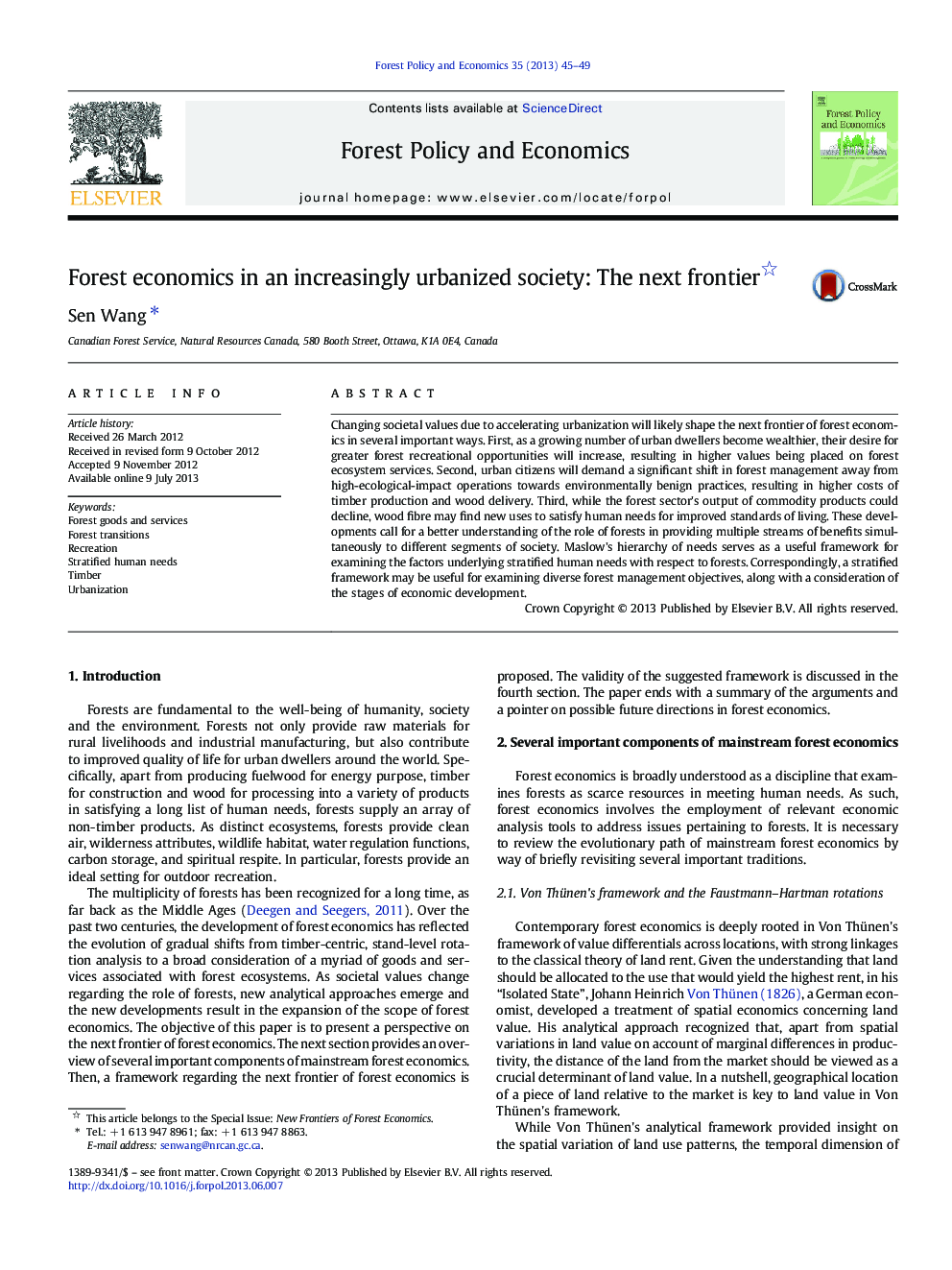| کد مقاله | کد نشریه | سال انتشار | مقاله انگلیسی | نسخه تمام متن |
|---|---|---|---|---|
| 91087 | 159736 | 2013 | 5 صفحه PDF | دانلود رایگان |

• Urbanization boosts demand for forest recreation and ecosystem services.
• Maslow's hierarchy helps examine shifting demand for forest goods and services.
• A stratified framework is useful for sorting diverse forest management objectives.
• Urban-based values will increasingly influence forest management practices.
Changing societal values due to accelerating urbanization will likely shape the next frontier of forest economics in several important ways. First, as a growing number of urban dwellers become wealthier, their desire for greater forest recreational opportunities will increase, resulting in higher values being placed on forest ecosystem services. Second, urban citizens will demand a significant shift in forest management away from high-ecological-impact operations towards environmentally benign practices, resulting in higher costs of timber production and wood delivery. Third, while the forest sector's output of commodity products could decline, wood fibre may find new uses to satisfy human needs for improved standards of living. These developments call for a better understanding of the role of forests in providing multiple streams of benefits simultaneously to different segments of society. Maslow's hierarchy of needs serves as a useful framework for examining the factors underlying stratified human needs with respect to forests. Correspondingly, a stratified framework may be useful for examining diverse forest management objectives, along with a consideration of the stages of economic development.
Journal: Forest Policy and Economics - Volume 35, October 2013, Pages 45–49